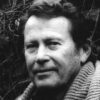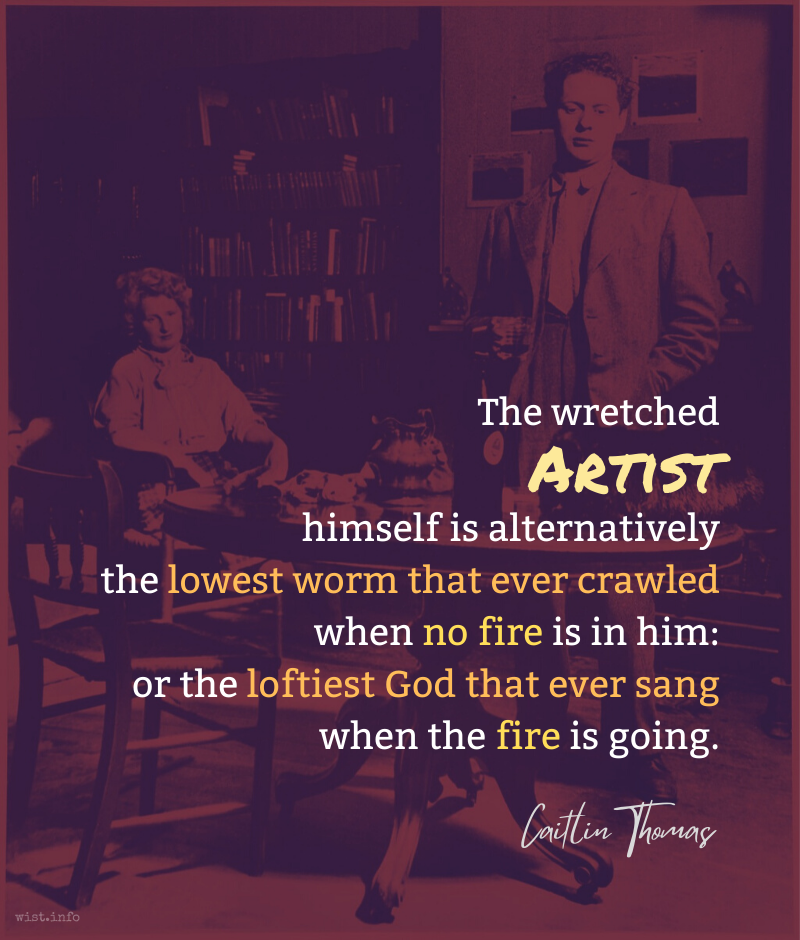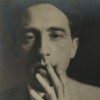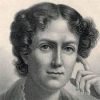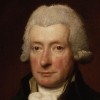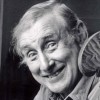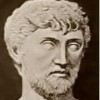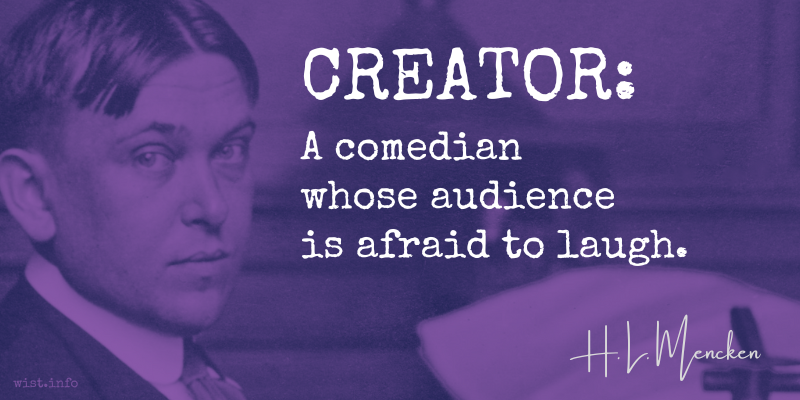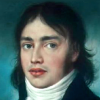It is erroneous to tie down individual genius to ideal models. Each person should do that, not which is best in itself, even supposing this could be known, but that which he can do best, which he will find out if left to himself. Spenser could not have written Paradise Lost, nor Milton the Faerie Queene. Those who aim at faultless regularity will only produce mediocrity, and no one ever approaches perfection except by stealth, and unknown to themselves.
William Hazlitt (1778-1830) English writer
“Thoughts on Taste,” Edinburgh Magazine (1819-07)
(Source)
Quotations about:
creator
Note not all quotations have been tagged, so Search may find additional quotes on this topic.
When a poet is being a poet — that is, when he is writing or thinking about writing — he cannot be concerned with anything but the making of a poem. If the poem is to turn out well, the poet cannot have thought of whether it will be saleable, or of what its effect on the world should be; he cannot think of whether it will bring him honor, or advance a cause, or comfort someone in sorrow. All such considerations, whether silly or generous, would be merely intrusive; for, psychologically speaking, the end of writing is the poem itself.
The relation between the artist and reality is an oblique one, and indeed there is no good art which is not consciously oblique. If you respect the reality of the world, you know that you can approach that reality only by indirect means.
Richard Wilbur (1921-2017) American poet, literary translator
“The Bottles Become New, Too” (1953), Responses: Prose Pieces, 1953-1976 (1976)
(Source)
Originally published in Quarterly Review of Literature, Vol. 7, No. 3 (1953).
The man is nothing, the work all!
[L’homme n’est rien, l’oeuvre tout!]
Gustave Flaubert (1821-1880) French writer, novelist
Letter to George Sand (Dec 1875)
Original French. Arthur Conan Doyle misquoted this in "The Red-Headed League" as "L'homme c'est rien -- l'oeuvre c'est tout."
The wretched Artist himself is alternatively the lowest worm that ever crawled when no fire is in him: or the loftiest God that ever sang when the fire is going.
Caitlin Thomas (1913-1994) British author, wife of Dylan Thomas [née Macnamara]
Not Quite Posthumous Letter to My Daughter (1963)
(Source)
A work of art has an author and yet, when it is perfect, it has something which is essentially anonymous about it.
Simone Weil (1909-1943) French philosopher
Gravity and Grace [La Pesanteur et la Grâce], “Beauty” (1947) [ed. Thibon] [tr. Crawford/von der Ruhr (1952)]
(Source)
Be not afraid! In admitting a creator, refuse not to examine his creation; and take not the assertions of creatures like yourselves, in place of the evidence of your senses and the conviction of your understanding.
Frances "Fanny" Wright (1795-1852) Scottish-American writer, lecturer, social reformer
A Course of Popular Lectures, Lecture 3, “Of the more Important Divisions and Essential Parts of Knowledge” (1829)
(Source)
All things are artificial, for nature is the art of God.
Thomas Browne (1605-1682) English physician and author
Religio Medici, Part 1, sec.16 (1642) [ed. Symonds (1886)]
(Source)
And God said, Let there be light, and there was light; but Eastern Electricity Board said He would have to wait until Thursday to be connected.
Terence Alan "Spike" Milligan (1918-2002) Anglo-Irish comedian, writer, actor
The Bible According to Spike Milligan, “The Creation According to the Trade Unions” (1994)
(Source)
Quoted in Spike Milligan's Meaning of Life: A Sort of Autobiography, ch. 1 (2011) [ed. Norma Farnes]
I still think the argument from design the weakest possible ground for Theism, and what may be called the argument from un-design the strongest for Atheism.
C. S. Lewis (1898-1963) English writer, literary scholar, lay theologian [Clive Staples Lewis]
Letter to Alan Griffiths (20 Dec 1946)
(Source)
By no means is the natural order of things fashioned for us by a divine agency: so greatly do the imperfections with which it has been endowed stand out.
[Nequaquam nobis divinitus esse paratam
naturam rerum: tanta stat praedita culpa]
The truth is, as every one knows, that the great artists of the world are never Puritans, and seldom even ordinarily respectable. No virtuous man — that is, virtuous in the Y.M.C.A. sense — has ever painted a picture worth looking at, or written a symphony worth hearing, or a book worth reading.
Wanting to meet an author because you like his work is like wanting to meet a duck because you like paté.
Margaret Atwood (b. 1939) Canadian writer, literary critic, environmental activist
Negotiating with the Dead, ch. 2 “Duplicity: The jekyll hand, the hyde hand, and the slippery double” (2002)
(Source)
Usually directly attributed to Atwood, but she made it clear that it was not hers:
There's an epigram tacked to my office bulletin board, pinched from a magazine -- [the quotation]. That's a light enough comment upon the disappointments of encountering the famous, or even the moderately well-known -- they are always shorter and older and more ordinary than you expected -- but there's a more sinister way of looking at it as well. In order for the paté to be made and then eaten, the duck must first be killed. And who is it that does the killing?
Go and make interesting mistakes, make amazing mistakes, make glorious and fantastic mistakes. Break rules. Leave the world more interesting for your being here. Make. Good. Art.
Neil Gaiman (b. 1960) British author, screenwriter, fabulist
Commencement address, University of the Arts, Philadelphia (2012)
(Source)
A transition from an author’s book to his conversation, is too often like an entrance into a large city, after a distant prospect. Remotely, we see nothing but spires of temples and turrets of palaces, and imagine it the residence of splendour, grandeur and magnificence; but when we have passed the gates, we find it perplexed with narrow passages, disgraced with despicable cottages, embarrassed with obstructions, and clouded with smoke.
Samuel Johnson (1709-1784) English writer, lexicographer, critic
The Rambler, #14 (5 May 1750)
(Source)
For how can anything done by the will of God be contrary to nature, when the will of so great a creator constitutes the nature of each created thing? A portent therefore happens not contrary to nature, but contrary to what is known of nature.
[Quo modo est enim contra naturam, quod Dei fit uoluntate, cum uoluntas tanti utique conditoris conditae rei cuiusque natura sit? Portentum ergo fit non contra naturam, sed contra quam est nota natura.]
Augustine of Hippo (354-430) Christian church father, philosopher, saint [b. Aurelius Augustinus]
City of God [De Civitate Dei], Book 21, ch. 8 (21.8) (AD 412-416) [tr. Green (Loeb) (1972)]
(Source)
Commonly: "Miracles are not contrary to nature, but only contrary to what we know about nature."
(Source (Latin)). Alternate translations:
For how is that contrary to nature which happens by the will of God, since the will of so mighty a Creator is certainly the nature of each created thing? A portent, therefore, happens not contrary to nature, but contrary to what we know as nature.
[tr. Dods (1871)]
Nothing that happens by the will of God can be ‘contrary to nature.’ The ‘nature’ of any particular created thing is precisely what the supreme Creator of the thing willed it to be. Hence, a portent is merely contrary to nature as known, not to nature as it is.
[tr. Walsh/Honan (1954)]
For how can an event be contrary to nature when it happens by the will of God, since the will of the great Creator assuredly is the nature of every created thing? A portent, therefore, does not occur contrary to nature, but contrary to what is known of nature.
[tr. Bettenson (1972)]
When the Egyptians were drowning in the Red Sea, the angels in heaven began to break forth in songs of jubilation, but the Holy One, blessed be He, silenced them: “My creatures are perishing — and ye are ready to sing!”
He prayeth well, who loveth well
Both man and bird and beast.
He prayeth best, who loveth best
All things both great and small;
For the dear God who loveth us,
He made and loveth all.


